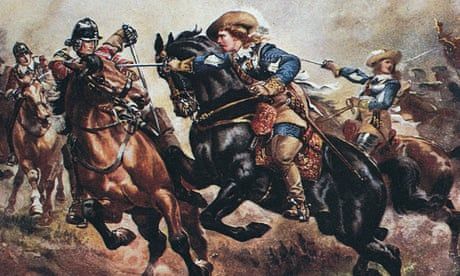
A clear-eyed look at two friends who took pivotal roles in the war that split the nation
At the Battle of Edgehill in 1642 , King Charles I numbered Edward Hyde , a short, paunchy lawyer with no aptitude or appetite for military combat, among his supporters. Hyde was there because he believed that, despite his majesty’s delinquency (high taxes, no parliament), monarchical government still offered the surest guarantee of England’s long-term stability.
Three weeks later, another soft-living lawman joined the combat, this time on the opposing side. Bulstrode Whitelocke had likewise pondered the nation’s interests and concluded reluctantly that the Parliamentarians, led by Oliver Cromwell, presented the best chance for putting a fractured nation back together. The fact that Hyde and Whitelocke had once been friends was just one more sadness at this saddest of times.
Continue reading...